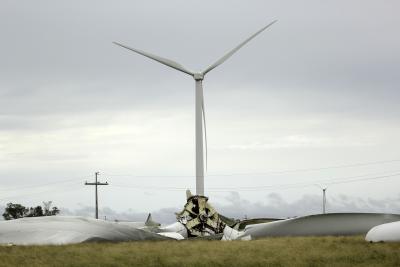
New Delhi, May 15 (IANS) Brazil, the host to the next year’s G20 summit, has the highest share of clean electricity in the G20, said a report by energy think-tank Ember on Monday.
In 2022, Brazil generated 89 per cent of its electricity from clean sources, which includes 63 per cent hydro, 12 per cent wind power and three per cent solar power.
Fossil fuels accounted for 11 per cent of Brazil’s generation in 2022, the majority of which was gas (seven per cent).
India, the current host, is much further behind in decarbonising its electricity system. It has the second highest coal reliance, after South Africa, but is already getting nine per cent of its electricity from solar and wind.
“Brazil is way ahead of India in securing a clean electricity system,” said Dave Jones, Ember’s Head of Data Insights.
“G20 hosts can both learn from each others’ successes. India is stepping up as a solar king, with generation growing by 45 times in the last decade to reach five per cent of its power in 2022. Brazil had a headstart with a strong base in hydroelectric power, but they haven’t rested on their laurels, with a truly impressive growth in wind power, which has grown by 16 times in the last decade and reached 12 per cent of its power in 2022.”
Wind and solar replacing coal power’s share in G20 countries. Pathways aligned with 1.5C require rapid reduction in coal power this decade.
Wind and solar have reduced the share of coal power in G20 countries since the Paris Agreement, according to an analysis of data from the fourth annual Global Electricity Review published by energy think-tank Ember.
However, the transformation is not yet happening fast enough for a pathway aligned with 1.5C, although there are positive signs.
The data reveals that in G20 countries, wind and solar reached a combined share of 13 per cent of electricity in 2022, up from five per cent in 2015. In this period, the share of wind power doubled and the share of solar power quadrupled. As a result, coal power fell from 43 per cent of G20 electricity in 2015 to 39 per cent in 2022.
Shares of other sources of electricity remained broadly stable, with fluctuation of just 1-2 percentage points.
According to the IPCC, wind and solar can deliver more than a third of the emissions cuts required in 2030 to limit global heating to 1.5 degrees. Encouragingly, half of these emissions reductions from wind and solar would actually save money compared to the reference scenario.
“Replacing coal power with wind and solar is the closest thing we have to a silver bullet for the climate,” said Malgorzata Wiatros-Motyka, senior analyst at Ember.
“Not only do solar and wind cut emissions fast, they also bring down electricity costs and reduce health-harming pollution.”
Across the G20, progress towards wind and solar power is mixed. The leaders are Germany (32 per cent), the UK (29 per cent) and Australia (25 per cent). Turkey, Brazil, the US and China have consistently held above the global average. At the bottom are Russia, Indonesia and Saudi Arabia with nearly zero wind and solar power in their mix.
Thirteen of the G20 still have more than a half of their electricity from fossil fuels as of 2022. Saudi Arabia stands out with almost 100 per cent of its electricity from oil and gas. South Africa (86 per cent), Indonesia (82 per cent) and India (77 per cent) are the next most reliant on fossil — all predominantly coal generation.
Among advanced (OECD) economies in the G20, which should target coal phase-out by 2030, there has been a reduction in coal generation by 42 per cent in absolute terms from 2,624 TWh in 2015 to 1,855 TWh in 2022.
The fastest decline in coal power in the G20 has been achieved by the UK, which reduced its coal generation by 93 per cent since the Paris Agreement was signed, falling from 23 per cent of electricity in 2015 to just two per cent in 2022.
Italy halved its coal power in the same period, while the US and Germany reduced their coal power by around a third. Even coal-dependent Australia has reduced its share of coal power from 64 per cent in 2015 to 47 per cent in 2022.
Among advanced economies in the G20, Japan stands out as it has yet to reduce its share of coal power, which remains around a third of its electricity.
The growth in wind and solar generation has been a key factor in the success of these OECD countries in reducing coal power. The UK and Germany stand out with the highest shares of wind power at 25 per cent and 22 per cent in 2022, while Australia and Japan top the G20 for solar power share at 13 per cent and 10 per cent, respectively, in 2022.
Although the G20’s share of coal power has reduced since the Paris Agreement, the absolute generation of coal power has increased as countries turn to coal to meet rising demand.
–IANS
vg/khz/










